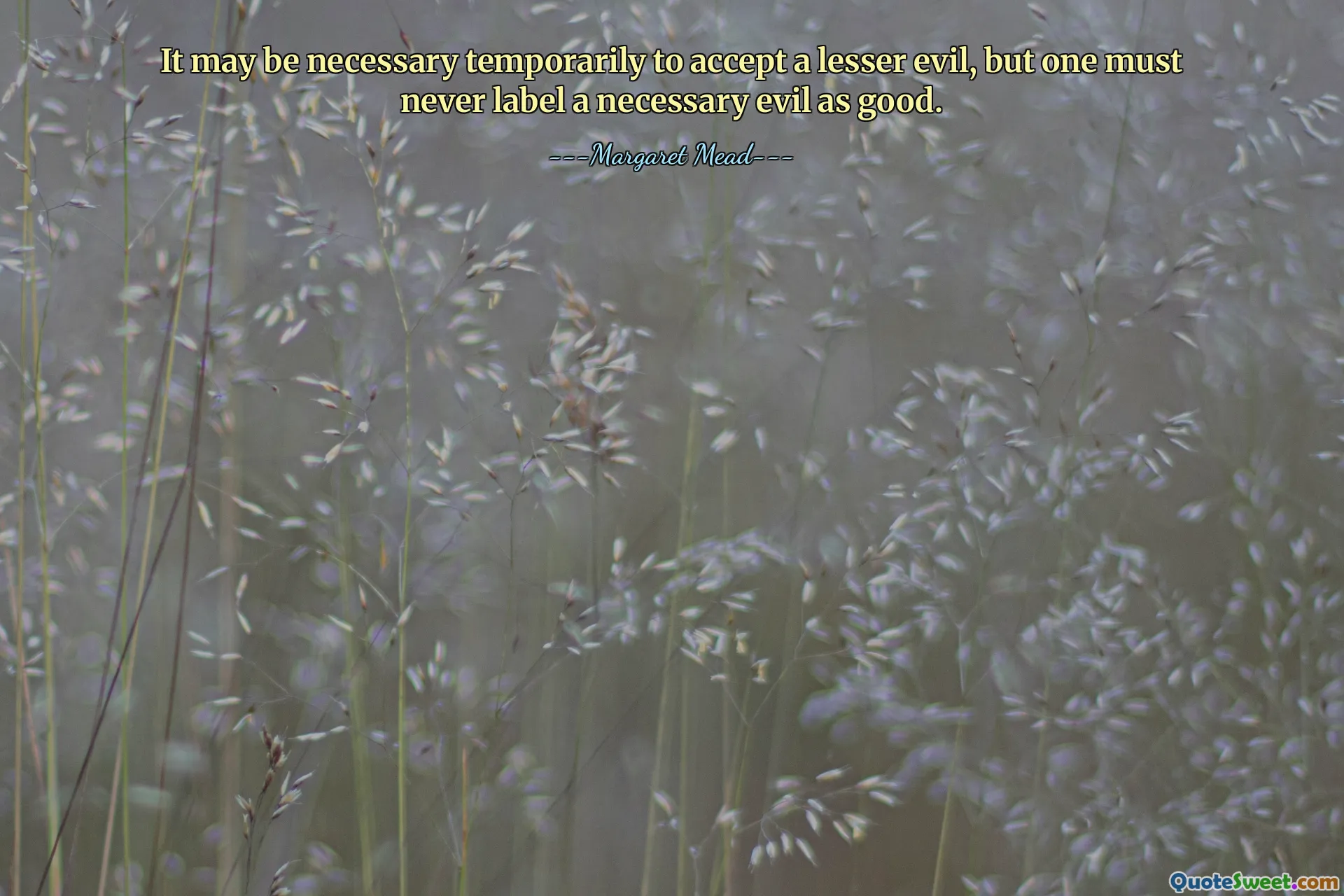
It may be necessary temporarily to accept a lesser evil, but one must never label a necessary evil as good.
This quote by Margaret Mead offers a nuanced perspective on the moral complexities often involved in decision-making. It acknowledges that life is sometimes about choosing between less-than-ideal options — a concept familiar to many from politics, social issues, and personal dilemmas. The idea of a "lesser evil" highlights the reality that perfection is rare, and compromises or sacrifices might be necessary to achieve even a partial good or to avoid a greater harm. However, Mead warns against conflating the acceptance of such a lesser evil with an endorsement or celebration of it as "good." This caution serves as an important ethical line: just because something must be tolerated or temporarily accepted does not mean it should be misleadingly framed as something beneficial or morally upright.
In broader terms, the quote challenges the human tendency toward cognitive shortcuts and self-justifications that obscure the true nature of harsh realities. It encourages us to stay discerning and honest, consistently evaluating our choices and values without succumbing to denial or complacency. This mindset promotes integrity and vigilance, especially in complex scenarios where moral clarity is hard to maintain. It reminds us not to lose sight of our ultimate moral compass, even when navigating difficult, imperfect circumstances.
Overall, this insight from Mead remains deeply relevant in many facets of life—from governance to personal ethics—emphasizing that endurance and compromise should never dissolve our fundamental understanding of right and wrong. Accepting flawed options temporarily is sometimes necessary, but it is critical for the ethical health of individuals and societies not to mistake necessary evils for genuine goods.











